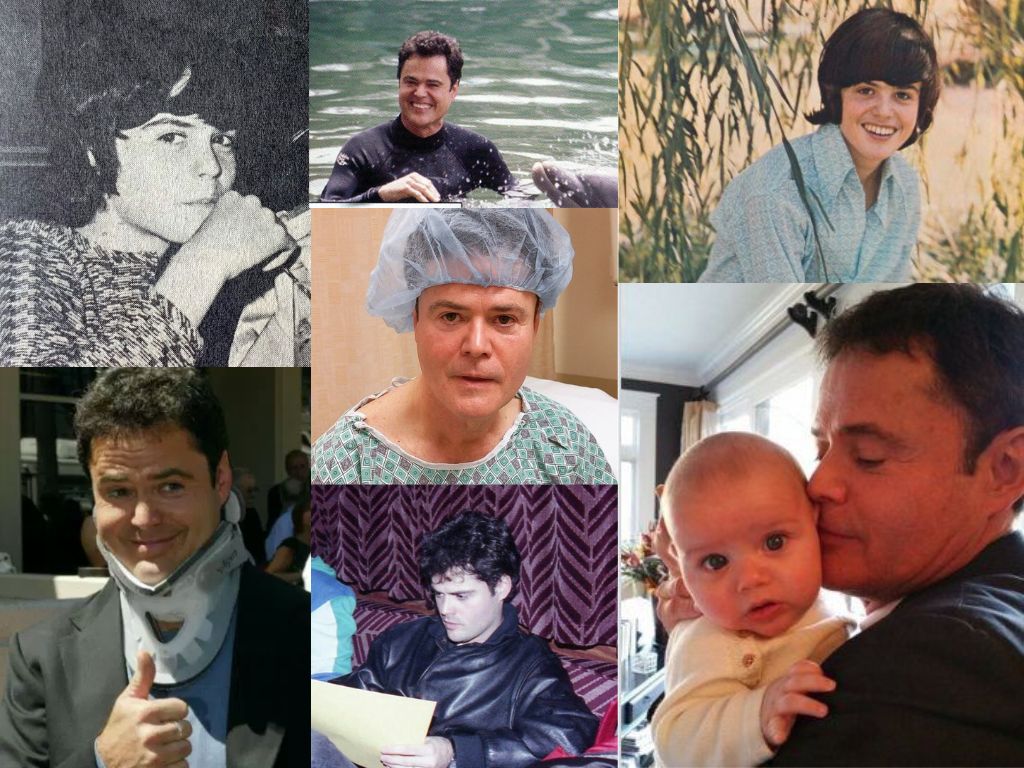
A Timeless Ballad of Loss and Resignation
Ah, Donny Osmond. For many of us, that name immediately conjures images of wholesome youth, dazzling smiles, and the kind of pop music that defined an era. But even for a star as seemingly perpetually sunny as Donny, there are moments that transcend the usual upbeat fare, delving into depths of emotion that resonate far beyond the catchy melodies. One such moment, perhaps surprisingly to some, arrived in 1973 with his rendition of “Alone Again (Naturally).” While the original, a poignant masterpiece penned and performed by the incomparable Gilbert O’Sullivan, had already swept the globe, Donny’s interpretation, released as a single from his album “Alone Together,” offered a different hue to this melancholic portrait.
It’s crucial to acknowledge the original’s colossal impact: Gilbert O’Sullivan’s “Alone Again (Naturally)” was a genuine phenomenon. It dominated the charts, spending six non-consecutive weeks at number one on the Billboard Hot 100 in the United States in 1972. It was a song that seemed to emerge from the ether, perfectly capturing a collective sense of quiet despair and contemplation. For Donny, then a burgeoning solo artist amidst the whirlwind success of The Osmonds, tackling such an iconic and emotionally charged track was a bold move. His version, while not reaching the stratospheric heights of O’Sullivan’s original, still resonated with his fanbase, peaking at a respectable number 26 on the Billboard Hot 100 in September 1973. This was a testament not only to Donny’s enduring popularity but also to the universal appeal of the song’s profound themes.
The story behind “Alone Again (Naturally)” is a deeply personal one for Gilbert O’Sullivan, and understanding its genesis adds layers to Donny’s subsequent interpretation. O’Sullivan, often known for his somewhat quirky and observational lyrics, laid bare a raw vulnerability in this track. He revealed that the song was largely inspired by the death of his father and the profound sense of loss and isolation that followed. The lyrics paint a vivid picture of a man grappling with sorrow, from the opening lines lamenting his abandonment “by a woman” to the poignant reflection on his parents’ passing. It’s a journey through grief, doubt, and ultimately, a weary acceptance of being “alone again, naturally.” This isn’t just a breakup song; it’s a profound meditation on life’s inevitable heartbreaks and the human condition of solitude.
For Donny Osmond to choose this song, particularly at a time when his public image was so intertwined with youthful exuberance, speaks volumes. While he may not have personally experienced the exact same grief that inspired O’Sullivan, his rendition brought a different kind of introspection. Donny’s performance, while perhaps less world-weary than O’Sullivan’s, still conveyed a genuine understanding of the song’s underlying sadness. It allowed his audience, many of whom were growing up alongside him, to see a different facet of his artistry, a willingness to explore more somber territory. It hinted at the universal struggles that even the brightest stars face, bridging the gap between celebrity and shared human experience.
Listening to Donny Osmond’s “Alone Again (Naturally)” today, especially for those of us who remember its initial release, evokes a powerful sense of nostalgia. It takes us back to a simpler time, perhaps, but also to a period of our lives when we, too, were navigating our own heartbreaks and moments of solitude. The song’s enduring power lies in its unvarnished honesty. It doesn’t offer easy answers or platitudes; instead, it acknowledges the often-painful reality of loss and the quiet strength it takes to carry on. Whether it’s the sting of a first love lost, the ache of family absence, or simply the existential weight of being a solitary individual in a vast world, “Alone Again (Naturally)” speaks to those moments when we find ourselves facing life’s challenges with only ourselves for company. And in Donny Osmond’s earnest delivery, we find a comforting resonance, a reminder that even in our loneliness, we are, paradoxically, not entirely alone. It’s a classic that continues to echo in the quiet chambers of our memories, a testament to the enduring power of a truly meaningful song.